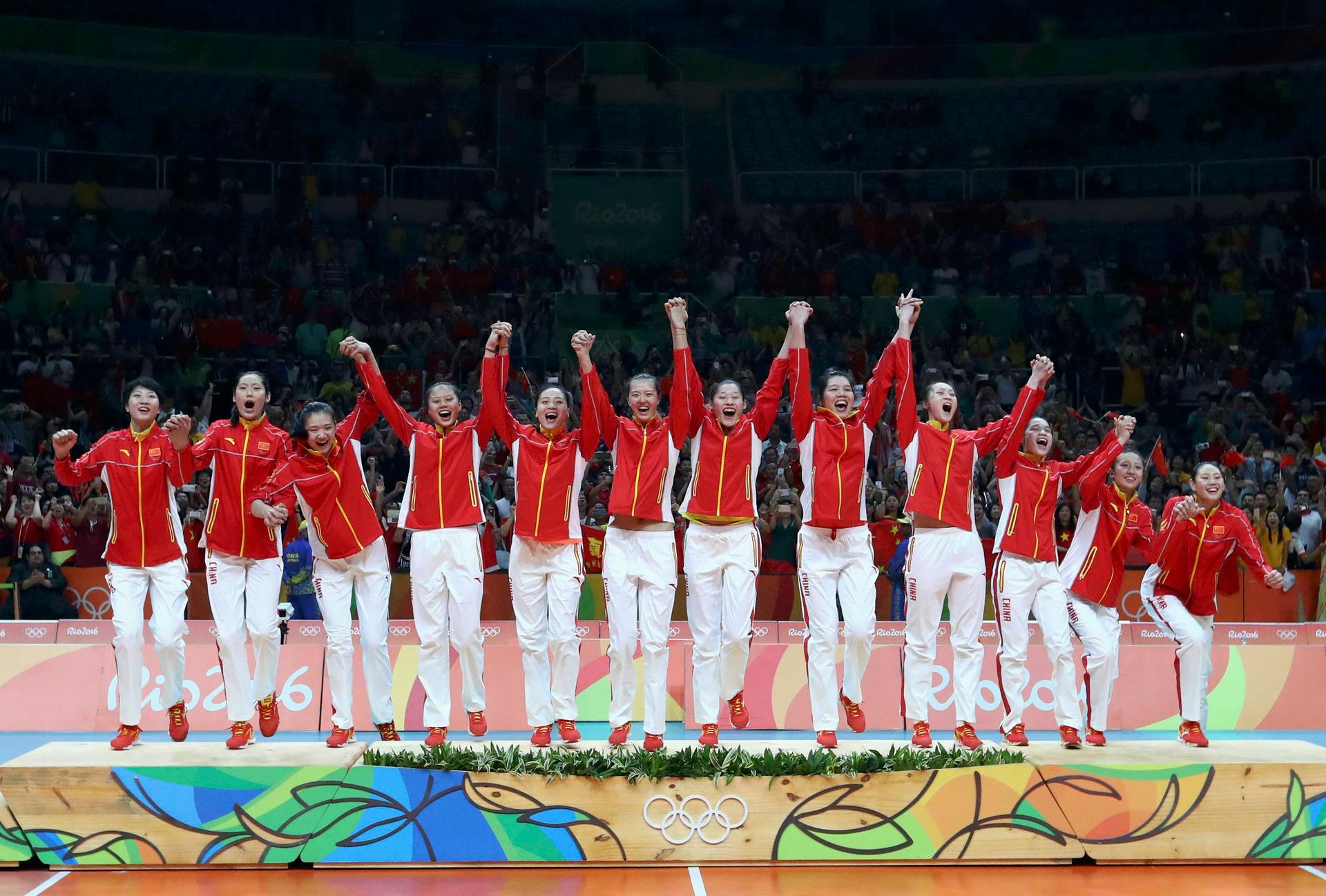China's gold medal-winning Olympic volleyball team celebrates on the podium.
Team USA had an incredible medal haul at the 2016 Olympics — with women leading the way. Women competing in female-only events took home 61 medals, compared to 56 by men and another four medals in mixed competitions.
And for the second consecutive Summer Games, the US sent more women athletes than men. But on the whole, there were still more men competing than women at the Olympics.
It turns out, countries that send more female athletes don't just do better in the medal standings on the whole, many also perform better in competitions only open to men.
If you count just the gold medals won from 1896 (the first modern summer Olympics) through 2012, China would have been a major loser without women. Out of its 201 gold medals during that time, Chinese women won 110 — 55 percent.
Women accounted for 24 percent of all US gold medals during that time, as you see here:
The modern Olympic Games opened the doors to women in 1900, but they were only allowed to compete in two of the 95 events.
The struggle for equality has slowly pushed that number higher. In the 1992 Summer Games, the number of women's and mixed events reached parity with men's events. Despite having fewer opportunities, medals won by female athletes figure significantly in the overall medal standings.
This is especially true for countries such as China and Romania, which have benefited greatly from a sharp increase in women's events, starting with the 1980 Summer Olympics.
Using the latest medal data, we created a database of winners in women-only events. We didn't include mixed events because the data does not state the sex of the winners.
Several countries rely heavily on female athletes for their medal totals.
China, for example, would drop from sixth to 11th, while Ukraine would lose 16 of its 33 total gold medals without its female Olympians. Romania would fall from 14th to 26th, as two-thirds of its gold medals were won in women's events.
This analysis supports the findings of several studies that countries with more gender equality bring home more medals overall.
Despite their increasing role and contribution in sports, women still face hurdles ranging from lopsided media coverage, a pay gap, inferior access to sport opportunities, inequal facilities to discriminatory social norms. Such challenges are especially prominent in developing regions and parts of the Muslim world.
Based on the IOC data, 47 of 131 countries have no medals won in women's events. Among these 47 countries, 44 are in Africa and Asia, and 15 have a Muslim-majority population.
Solving inequalities in sports could improve women's lives. Lakshmi Puri, UN assistant secretary-general and UN Women deputy executive director, says if women are allowed to participate in sports, it can help eliminate gender stereotypes, improve self-esteem and contribute to the development of leadership skills.
“Women in sport defy the misperception that they are weak or incapable," Puri said. "Every time they clear a hurdle or kick a ball, demonstrating not only physical strength, but also leadership and strategic thinking, they take a step towards gender equality."
We want to hear your feedback so we can keep improving our website, theworld.org. Please fill out this quick survey and let us know your thoughts (your answers will be anonymous). Thanks for your time!
